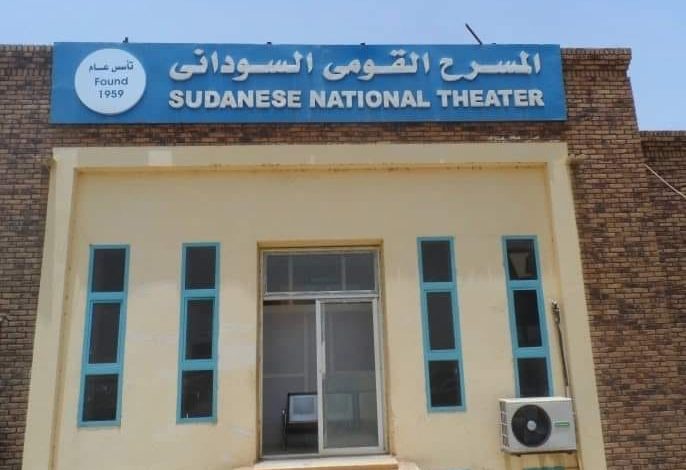Due to Its absence this year… Signatures on the wall of the National Theater

Sudan Events – Magda Hassan
Over the past years, Al-Buqaa Festival has been a candle through which Sudanese theater celebrates World Theater Day on March 27 of each year.
The National Theater in Omdurman hosts this event and from its stage the word World Theater Day is broadcast.
This year represents an exceptional year. In addition to the extinguishing of the flame of the National Theater, theater makers at home and abroad have been divided between displaced and refugee, and despite the critical conditions they are working wherever they are.
World Theater Day was a holiday in which playwrights exchanged congratulations on a year of peace in which theater fulfills its mission to the fullest.
As for the stage of the National Theater, from which the rebellion emerged a few days ago, it stands sad on this day, and this sadness is shared by Sudanese theatres.
Director Hatem Mohamed Ali, a member of the National Acting Troupe, began his speech by saying (Is there another return or is it impossible?) in reference to the stage of the National Theater, and he expressed his pessimism about the return, and justified by saying, “According to the outcome, what happened indicates that, and according to the information, optimism ignoring this information makes…
We look at the future with innocent eyes.”
On the other hand, academic and actor Dr. Saleh Abdel Qader began to be more optimistic as he said: “Despite all the conditions that the country we love is going through,
The Sudanese people pass through it
On World Theater Day, we say that theater is life
The theatrical artist is the giver of hope for the good life of truth, beauty, knowledge, and thought, and the opposite of death and destruction.”
He added, “Theatrical art combats ugliness with beauty and hatred with love.”
And darkness with enlightenment and illumination..
Always and forever, he teaches us the art of dialogue and acceptance of others… and to rise above things and aspire towards the truth… not to breathe the polluted breeze. Long live freedom… just be more wonderful than us, truly more beautiful than us.”
The critic and academic Dr. Elisha Hassan Ahmed, in a direction not different from Hatem, says, “With affection and love for our colleagues, we say to the Sudanese playwrights, ‘May Allah heal the wounds of the soul, save the country, and let us return safely.’
In bitter reality, we say that theater with its traditional concepts is over. Reality has surpassed imagination and simulation by leagues, and new heroes have emerged, managing in vain that is impossible to keep up with.”
Now the free media, live streams, and platforms create a different theater for us.
What kind of theater do we want and what kind of theater do we make?
On what stage do we rise?
But the theater actor, Awad Shakespeare, was more optimistic and simply said, “Arise, you old genie, and be the destructive weapon and be a symbol of peace.”
Dr.. Shams al-Din Younis, a former director of the National Theater and a professor at the Faculty of Music and Drama, despite the lights being extinguished at the National Theater this year, he considered it (transcending circumstances) and said: We know that theater will remain as long as life remains and that theater is the art of demanding what is right.
He added, “Oh theater, you have great tasks in society.” Also Danny..
“You playwrights, get up to your tasks.”
The views of the playwrights fluctuate between hope and regret, but the most regretful of them is the former director of the theater, Makki Sinada, who gave the highest bid and had the longest management period at the National Theater in Omdurman, when he said, “What theater are you talking about?”



